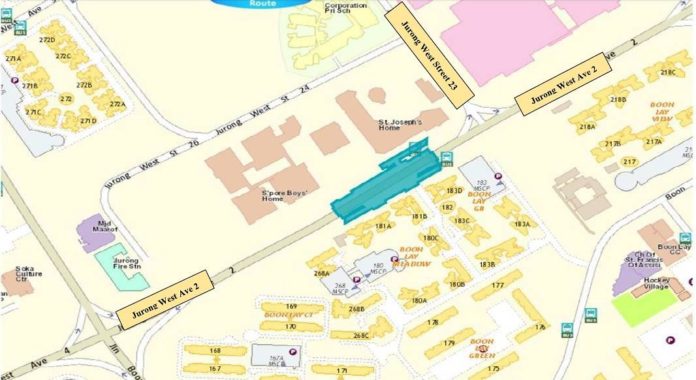SINGAPORE: Two Jurong Region Line stations will be designed and constructed by the Singapore branch of China Railway 11 Bureau Group, the Land Transport Authority said on Monday (Dec 9).
The S$210.1 million contract for the Jurong West and Bahar Junction stations also includes 1.15km of viaducts.
Jurong West station will be located along Jurong West Avenue 2, adjacent to Jurong West Street 23. The station will have a single island platform serving trains for both the Choa Chu Kang-bound and Jurong Pier-bound directions.
READ: Jurong Region Line to serve NTU, Tengah estate, Jurong Industrial Estate
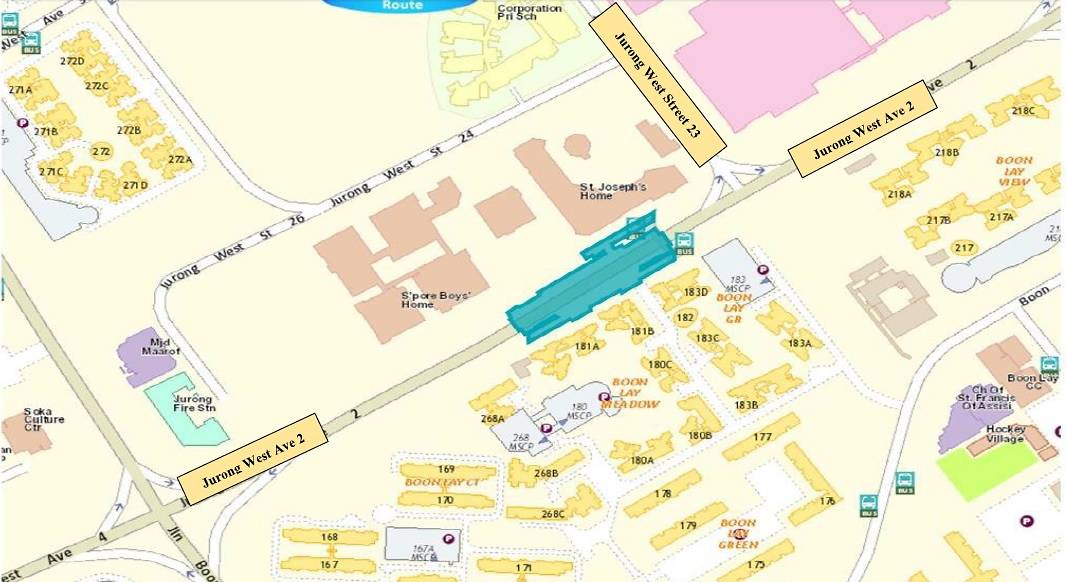
Location of Jurong West Station. (Image: Land Transport Authority)
Bahar Junction station will be located along Jurong West Avenue 4, near the junction of Jurong West Street 64 and Street 75. It will have two platforms connected by a 100-metre covered link bridge with travellators.
One platform will serve trains heading to Choa Chu Kang and Jurong Pier while the other platform will serve trains heading to Peng Kang Hill.
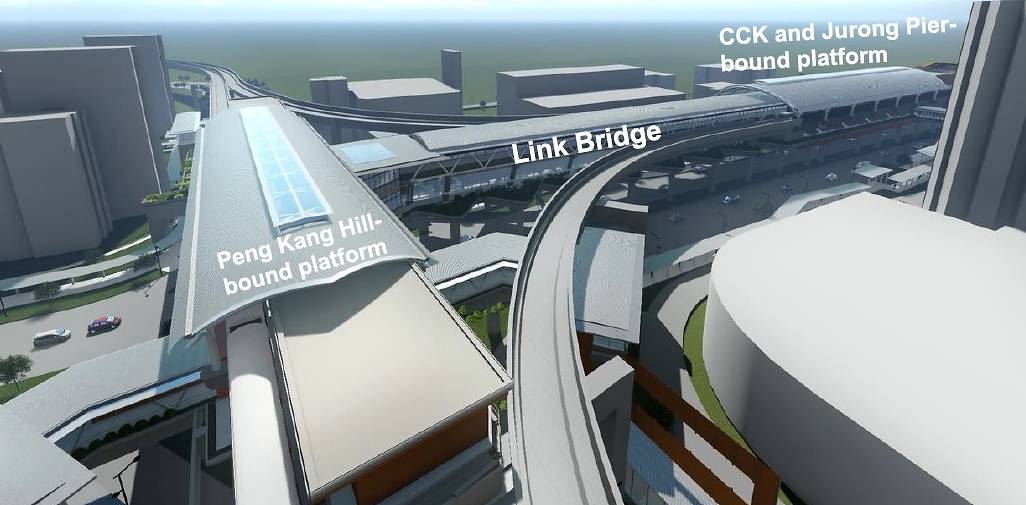
Artist’s impression of Bahar Junction Station. (Image: Land Transport Authority)
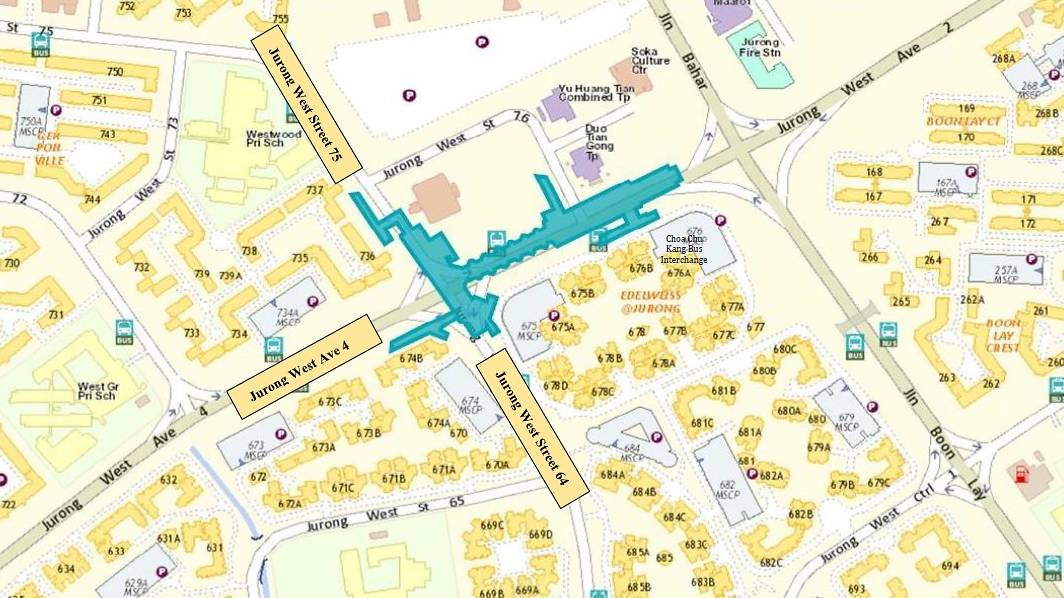
Location of Bahar Junction Station. (Image: Land Transport Authority)
LTA said the Singapore branch of the China Railway 11 Bureau Group is an “established and experienced” construction company that has completed various rail-related projects worldwide.
The company has completed several major infrastructure projects in Singapore including three MRT stations – Tuas Link, Tuas West Road and Tuas Crescent stations – and their associated viaducts on the East-West Line’s Tuas West Extension.
“The company also constructed Singapore’s first integrated rail and road viaduct as part of the Tuas West Extension project,” LTA added.
READ: Work to construct 5 MRT stations on Jurong Region Line to start in 2020
READ: Residents, workers disappointed by Jurong Region Line land acquisition plans
The Jurong Region Line is Singapore’s seventh MRT line, which will open in three stages starting from 2026.
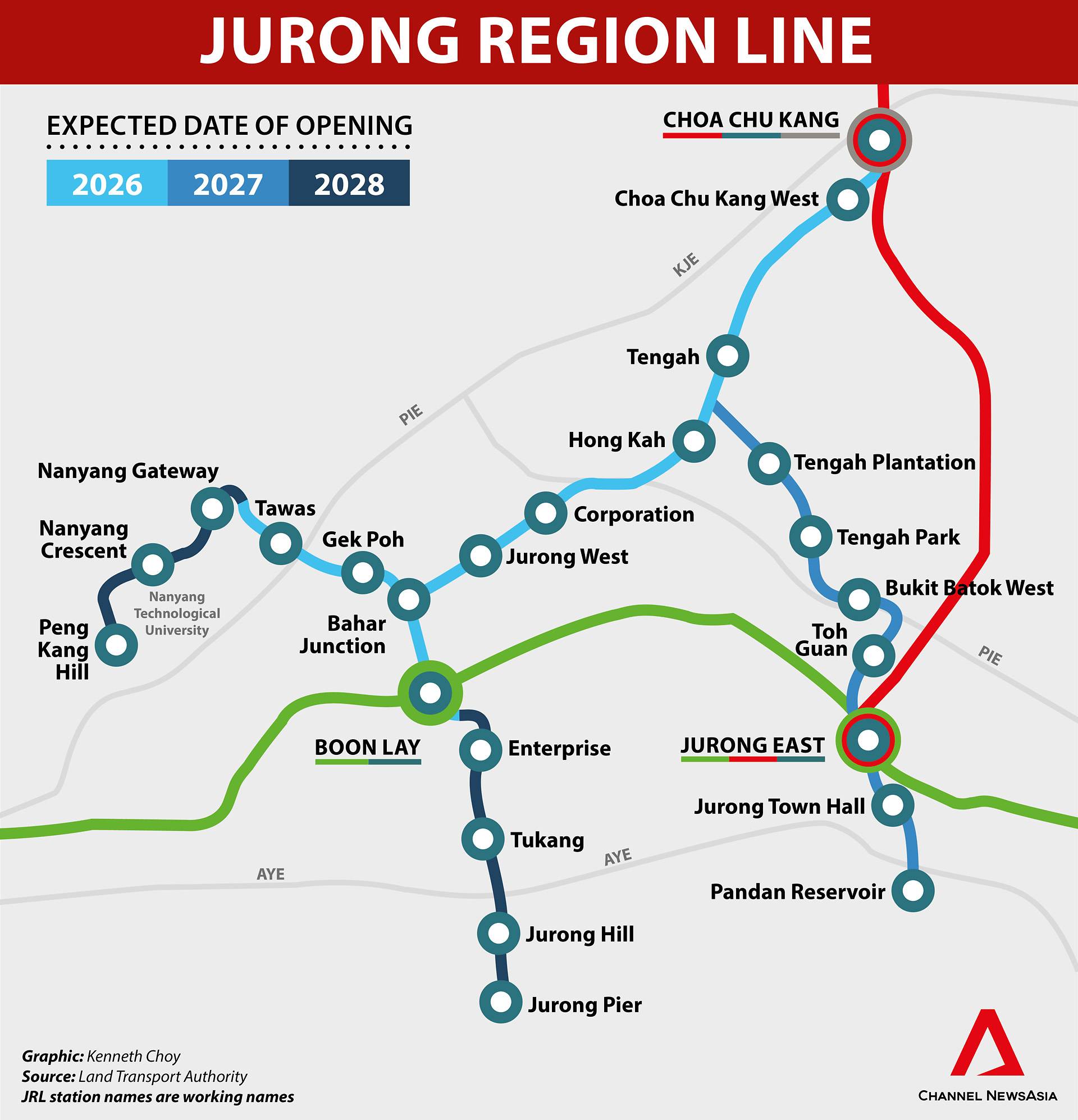
The 24km-long line will have 24 stations above ground, and will connect with the North-South Line and East-West Line with interchange stations at Boon Lay, Choa Chu Kang and Jurong East MRT stations.
The Jurong Region Line is expected to serve 200,000 commuters daily in its initial phase of operation. This is expected to grow to more than 500,000 commuters daily in the longer term, according to LTA.
Construction is expected to start in 2020 and be completed in 2026.
